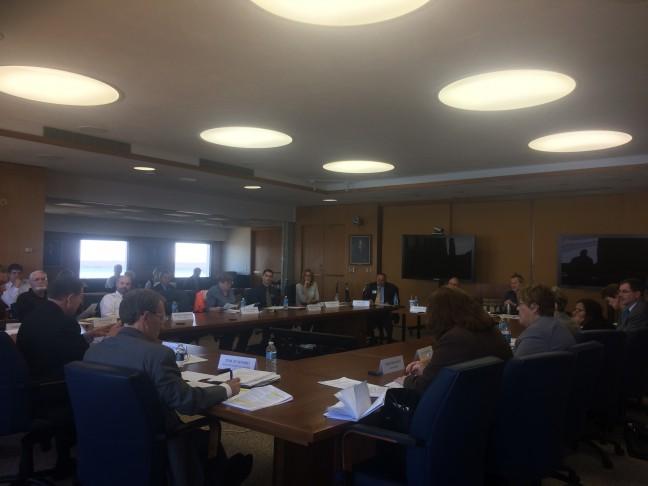The University of Wisconsin Board of Regent’s tenure task force scrutinized the language and definitions of tenure reviews and post tenure reviews Thursday afternoon.
For three hours, the tenure task force discussed changes to tenure and post tenure reviews, adequate review times for faculty layoffs and clarification of definitions of certain words in the current policy.
Tenure and merit reviews
One of the primary issues the task force focused on was tenure and post tenure reviews.
Two questions that came up constantly in the discussion were how frequently tenured faculty should be reviewed, and whether or not reviews should include a merit review that looks at the reviewed individual’s accomplishments.
Dorothy Farrar-Edwards, UW-Madison representative, explained UW-Madison conducts tenure reviews without the merit review process because many departments on campus already require a merit review every year.
Regina Millner, Board of Regents representative, agreed merit reviews should be separate from post tenure review and made into a monetary award.
Ken Menningan, UW-Stevens Point representative, believed separating merit reviews from post tenure reviews, however, would result in faculty disinterest in the review process.
The task force did not come to a decision whether to separate merit and post tenure reviews, but they came to a general consensus that post tenure reviews should occur every five years.
Faculty reviews
In continuing their discussion of tenure, the task force discussed substandard faculty reviews.
When faculty are given a poor performance review, the task force worried faculty may not have the option to appeal these reviews. They were also concerned that faculty who received unsatisfactory ratings would not be given the chance to improve their performance.
Current policies like those at UW-Madison, allow faculty to write on behalf of their performance so their disagreement with the review is on record, UW-Madison Provost Sarah Menglesdorf said.
There is no current policy, however, that allows for faculty to appeal a review they believe to be unwarranted.
The task force hoped the policy will encourage improvement in faculty, as it will serve as a means to recognize inadequate performances and how institutions should help faculty improve.
Faculty Layoffs
The task force discussed reasons why faculty could be laid off and the adequate notification time faculty members need should they be laid off.
As it stands, a faculty member can not be laid off if their beliefs differ from their institution’s solely because first amendment protects academic freedom.
Christina Roth, UW-Oshkosh representative, had a problem with the word “solely.” She believed solely should not be included because it suggests academic freedom is the only reason faculty may not be laid off.
Throughout their discussion, two points that consistently came up were first, the use of language, and second, the differences between the UW schools themselves.
The task force, for example, discussed whether dismissals of faculty were considered layoffs or terminations.
John Behling, task force chair, said language needed to be considered in the board’s writing and creation of layoff policy. Behling said the board will research and make sure to define the language so it is comprehensive.
Additionally, the task force agreed some of the specific decisions about the tenure review policies and implementations may best be left to the individual universities.
The task force hopes come to a consensus and to have a written draft of the policy before Christmas break.
The task force will meet next on Nov. 30.


